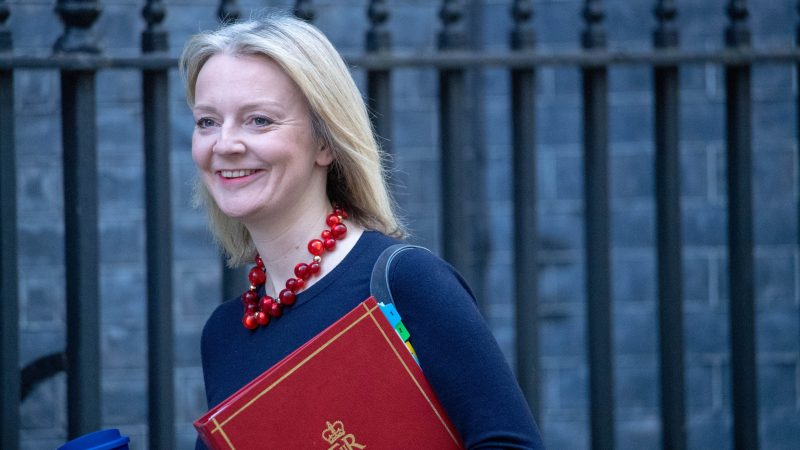
Boris Johnson has delivered his final speech as Prime Minister. The outgoing Tory leader gave a typically self-aggrandising address, reeling off a list of his perceived achievements in office in front of a crowd of his most loyal supporters. Angela Rayner described it as a “classic Boris Johnson speech, completely deluded about what’s happened over the last couple of years and the crisis that people are facing”. The deputy Labour leader noted that there was “no acknowledgement” of the “scandal and sleaze” that has engulfed Johnson’s government and declared that the address “stunk of all the hallmarks of somebody who’s had a privileged background who thinks that they can do what they like”.
Johnson and his successor Liz Truss will meet separately with the Queen this morning to formally transfer the leadership of the country to the incoming Tory leader. Throughout the leadership race, Labour stressed that Truss, along with her rival Rishi Sunak, were “continuity candidates“, complicit in the failures of the Johnson administration. The soon-to-be Prime Minister, for her part, was happy to acknowledge her support for her predecessor in her acceptance speech on Monday, praising Johnson’s record in government to awkward applause from her audience.
Responding to Truss’ election, Rayner slammed the new Tory leader for having “more to say about cutting tax for huge corporations than what she is going to do about the cost-of-living crisis”. She demanded that Truss “get on the side of working people” and back Labour’s proposal to freeze household energy bills. Truss dismissed Labour’s plan during the leadership campaign, likening it to a “sticking plaster” and stressing: “What’s not right is throwing money at the problem without dealing with the root cause.”
But, in what must be up there with the quickest U-turns in history, the new Prime Minister will reportedly announce a plan to freeze energy bills, potentially as early as Thursday. Truss’ plan could cost as much as £130bn over the next 18 months according to reports, with the shortfall in energy companies’ revenue expected to be covered by the taxpayer. On the broadcast round this morning, Rayner criticised Truss for making working people “foot the bill” for freezing energy costs and dismissed claims that the plan goes beyond what Labour has offered to support consumers.
Rayner is right to reject the suggestion that Truss’ rumoured plan somehow ‘outflanks’ the Labour Party. The cost of her proposal will potentially far exceed that of the opposition, who set out a plan to keep energy bills at their current level for six months at an estimated cost of £29bn. But, more importantly within the context of the deepening cost-of-living crisis, Truss’ plan may see the cost of freezing bills passed on to consumers, while Labour would fund its proposal through a combination of changes to the windfall tax, halting the government’s proposed £400 support payments for households and lowering government interest payments on debt.
Truss forcing consumers to cover the costs of a solution to a crisis that is at least in part of the Tories’ own making is ready political ammunition for Labour. But for working people, it is a predictably dismal start to her premiership and suggests that the government’s failure to face up to the realities of the current crisis will continue long after Johnson’s final departure from No 10.
Sign up to LabourList’s morning email for everything Labour, every weekday morning.



More from LabourList
‘Turning public services around: Haringey’s story of child protection’
‘Can Labour turn the green tide back to red?’
Tom Belger column: ‘Why is Labour making migrant exploitation easier?’